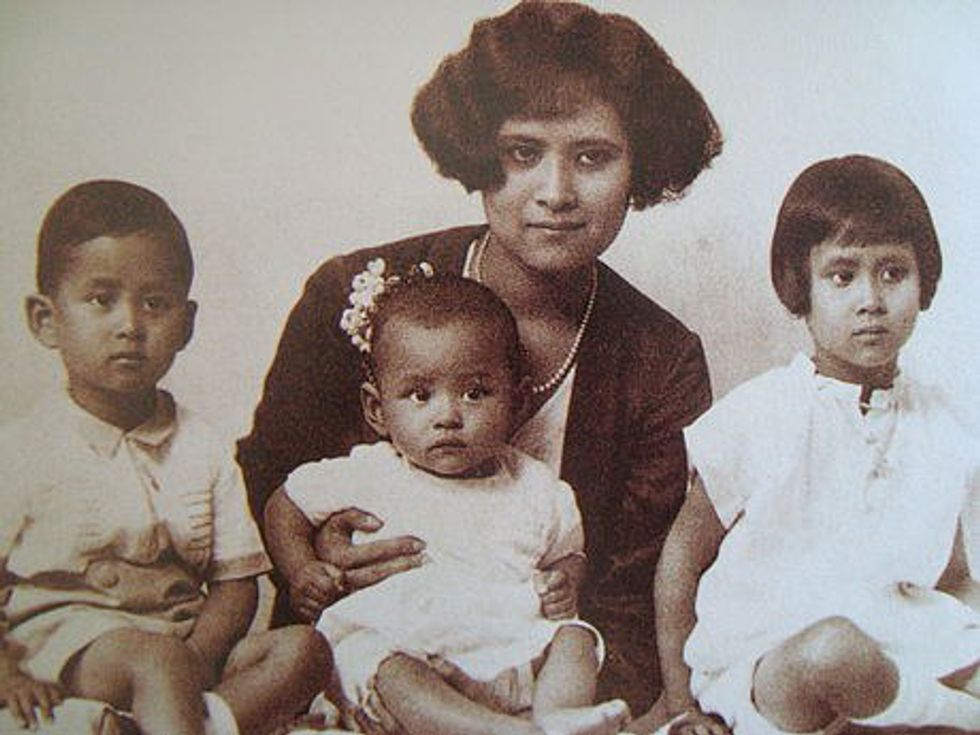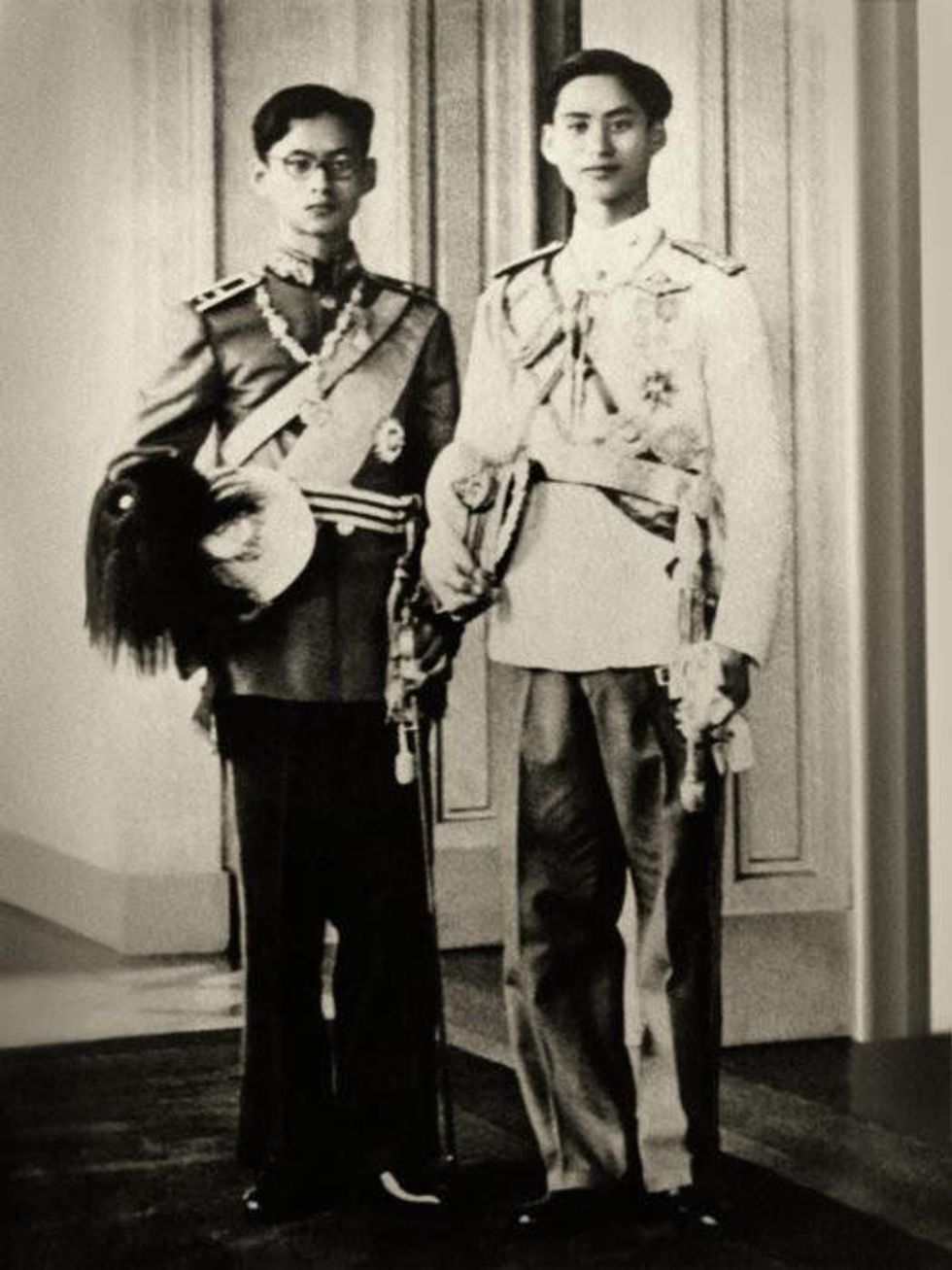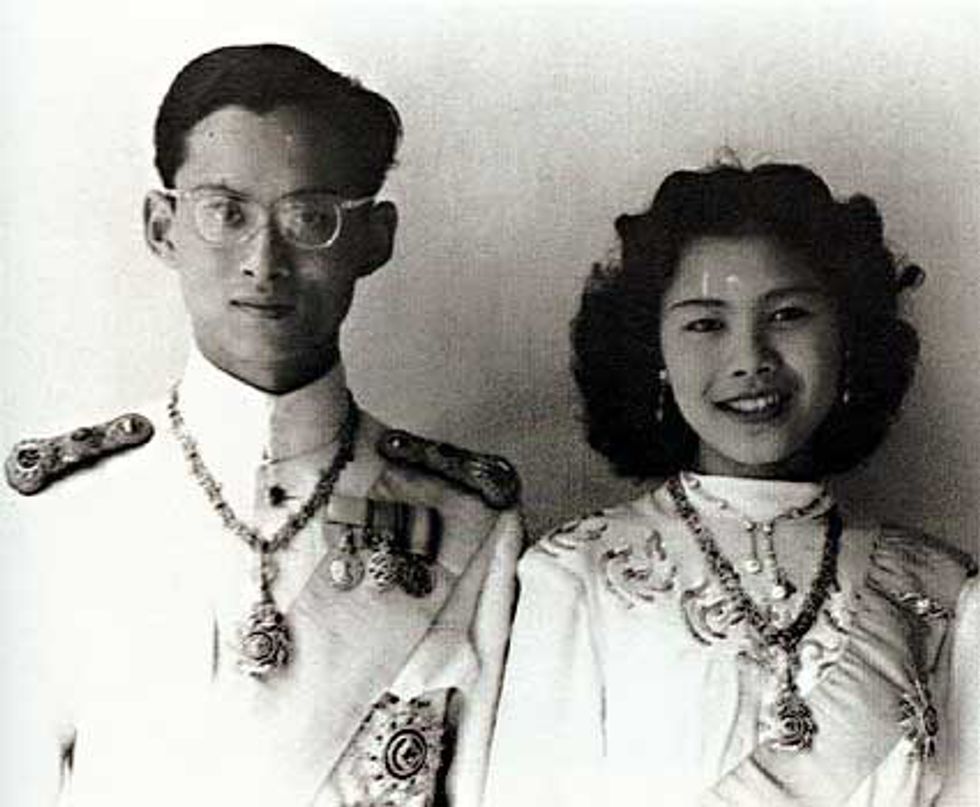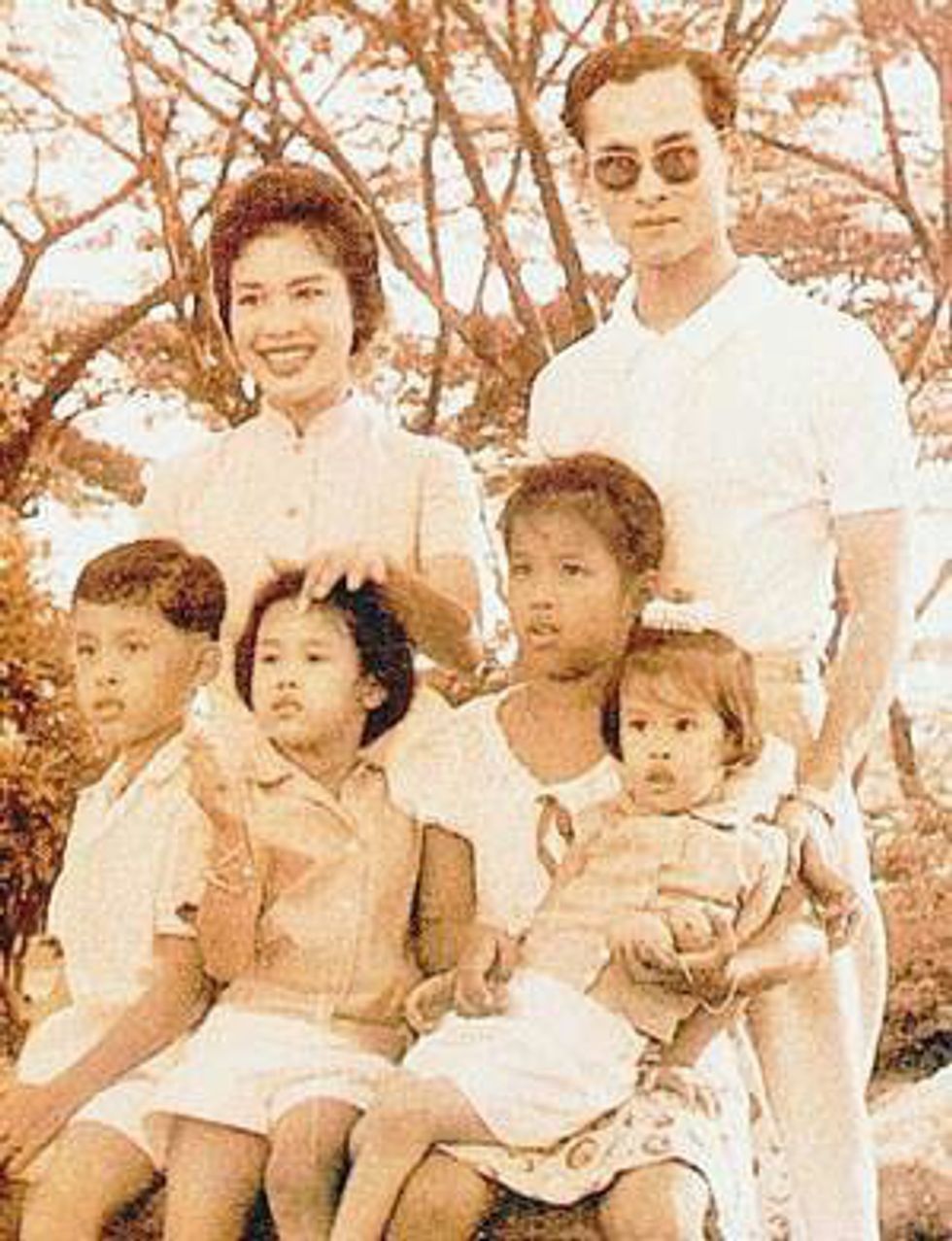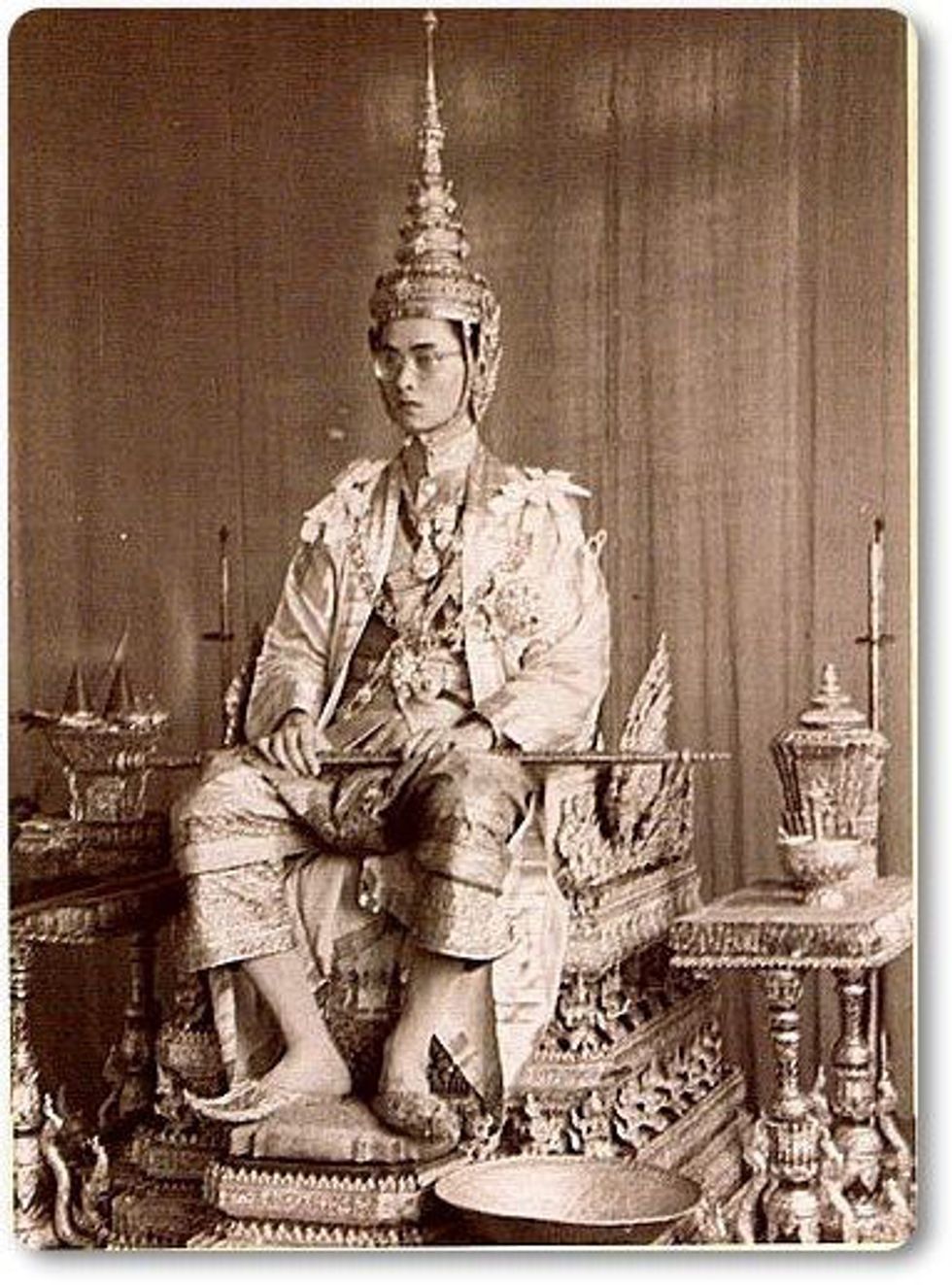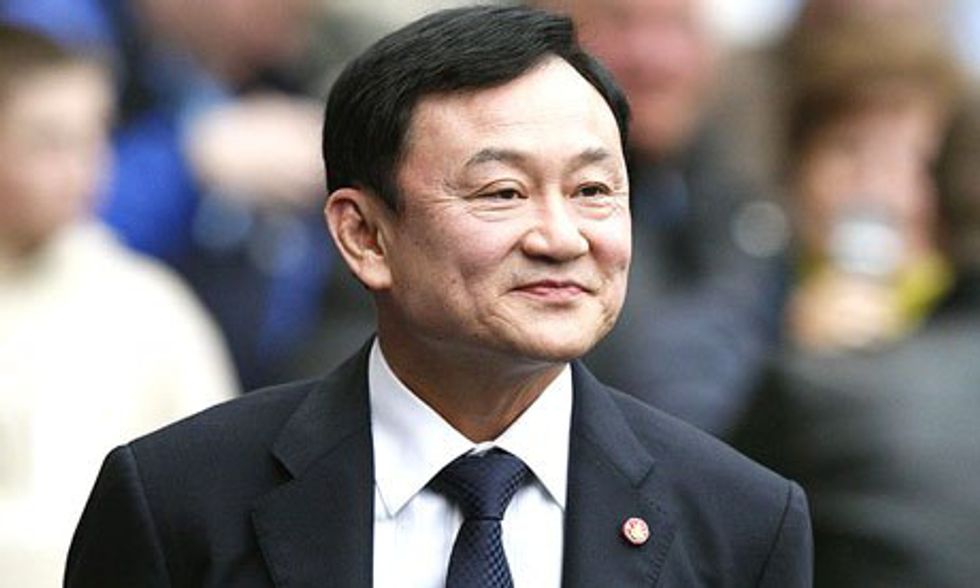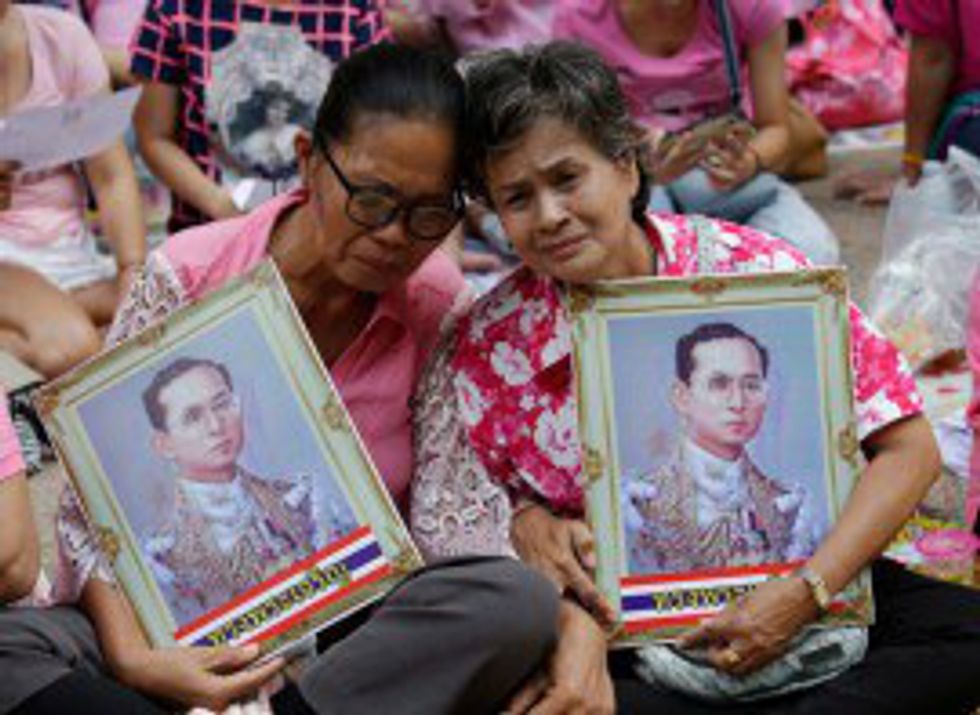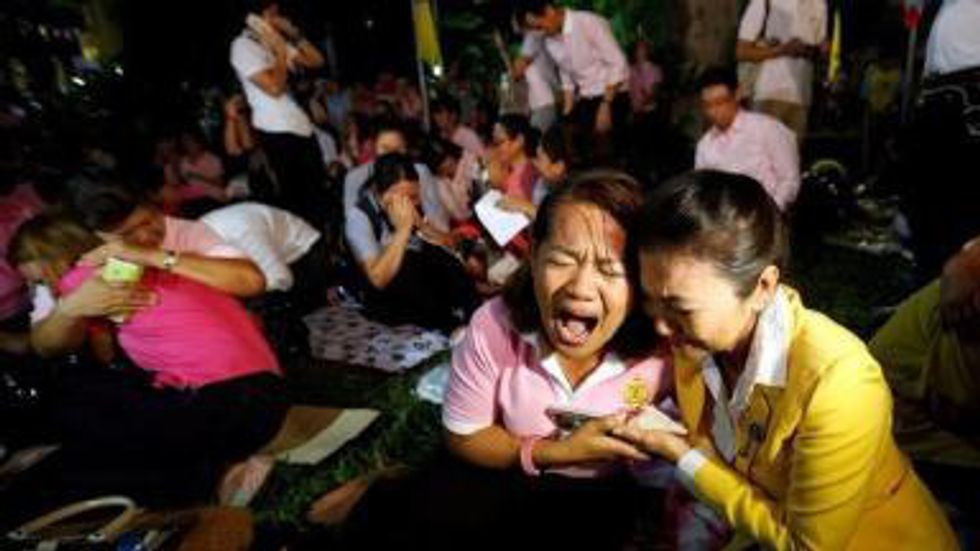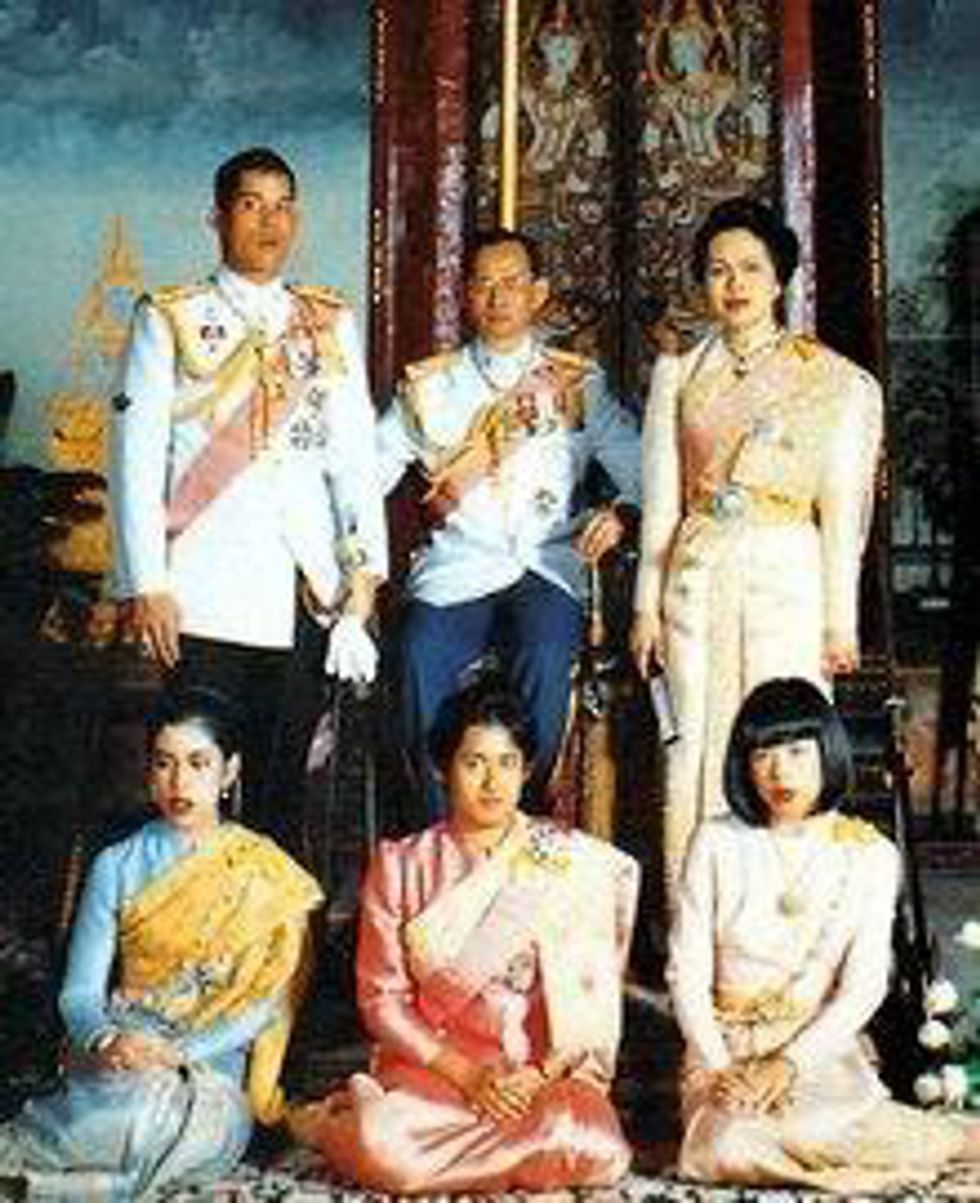King Bhumibol Adlyadej was born on December 5, 1927 in Cambridge, Massachusetts. He was the ninth monarch of Thailand from the Chakri Dynasty and the world's longest reigning monarch in the world, serving for 70 years and 126 days. He was the youngest of three children of Prince Mahidol Adulyadej and Princess Srinagarindra. King Bhumibol is the only Thai monarch to be born out of the country due to his father's enrollment in a public health program at Harvard. His family returned to Thailand in 1928, after his father graduated from Harvard. A year later in September 1929 his father died of kidney failure, Bhumibol was not yet two years old.
Bhumibol (center) with his mother and siblings
Ananda Mahidol (left) and Galyani Vadhana (right)
In 1933 after a brief time studying in Bangkok his mother moved her family to Switzerland. At the age of seven Bhumibol was given his first camera and began his passion of photography. Within a year Bhumibol’s uncle Prajadhipok stepped down from the throne and Bhumibol’s 9-year-old brother Ananda became the new King Rama VIII. The family remained in Switzerland only returning once until after World War II. In 1942 Bhumibol became a jazz enthusiast. He played clarinet, saxophone, and the piano and continued to do so throughout his life. (Insert picture) He received his baccalauréat des lettres (high-school diploma) with a major in French literature, Latin, and Greek and by 1945 had begun studying science at the University of Lausanne.
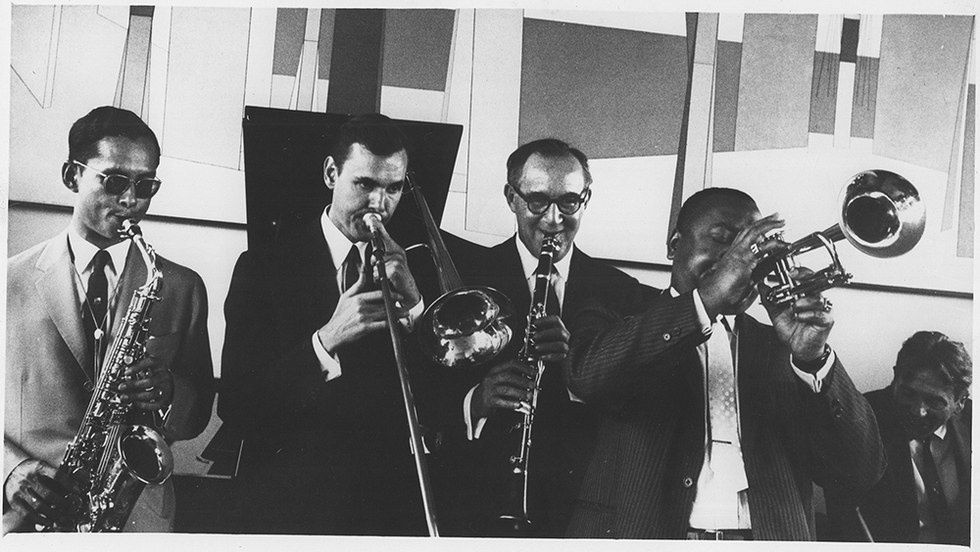
Shortly after their return to Thailand King Ananda Mahidol was shot and killed in June 1946 at the age of 20. The circumstances of his death remain unclear today but there are suspicions. However, two palace aides were eventually convicted and executed. Bhumibol succeeded his brother at the age of nineteen but returned to Switzerland before the end of the mourning period.
Bhumibol (left) and his Brother Ananda Mahidol (right)
His interests were science and technology but he changed his major and enrolled in law and political science to prepare for his duties. Bhumibol named his uncle Prince Rangsit of Chainat Prince Regent. He soon organized a military coup that overthrew the government in November 1947. He also signed the 1949 constitution and returned power to the monarchy that they had lost in the Revolution of 1932.
While finishing his degree in Switzerland, Bhumibol visited Paris frequently to visit the Thai Ambassadors daughter, Mom Rajawongse Sirikit Kitiyakara. On October 4, 1948 Bhumibol was in an accident that cost him the sight of his right eye, an injury to his bad, paralysis in half of his face. While he was hospitalized Sirikit came and visited him often. They were engaged on July 19, 1949 and married April 28, 1950. They have three daughters and one son.
King Bhumibol and his wife Sirikit Kitiyakara
King Bhumibol Adlyadej and his wife Mom Rajawongse Sirikit Kitiyakara and four children. Princess Ubolratana Rajakanya, Crown Prince Maha Vajiralongkorn, HRH Princess Maha Chakri Sirindhorn, and HRH Princess Chulabhorn Walailak.
King Bhumibol was coroneted on May 5, 1950 in the Grand Palace in Bangkok. In the ceremony he pledges that he would, “reign with righteousness for the benefit and happiness of the Siamese people.” He is often referred to as the “Lord of Life” and more formally พระบาทสมเด็จพระเจ้าอยู่หัว.
Coronation Day
Throughout his reign there were times in which Bhumibol had no real political power and was mostly a ceremonial figure under a military-dominated government. In August 1957 Dictator Phibunsongkhram went to Bhumibol to seek support of his government. Bhumibol advised him to resign and avoid a coup. Less than five hours later Sarit Thanarat overthrew Phibunsongkhram and Bhumibol named Sarit as the Military Defender of the Capital and a new Era started. In Sarit’s dictatorship the monarchy was much more active. Bhumibol attended public ceremonies and traveled throughout the provinces. For the first time since the absolute monarchy was overthrown King Bhumibol participated in a Royal Barge Procession and offered robes to monks at temples. Many other ceremonies were brought back, such as the birthday of the King and Queen were made national holidays. Father’s Day on December 5 and Mother’s Day on August 12. Sarit died December 8, 1963 and a 21-day period of mourning was declared. He was honored highly and put to rest. Sarit’s death brought Thanom Kittikachorn to lead Thailand’s military dictatorship. He was challenged by the 1973 uprising. Bhumibol asked student protestors to disperse but police attacked and killed dozens of students which sparked riots. Bhumibol immediately announced Thanom’s resignations and exile from Thailand. After political events in Vietnam, Cambodia, and Laos threatened the Thai monarchy and politics Bhumibol brought back Thanom back into the country. The people protested Thanom’s return and chaos erupted. Bhumibol later chose Thanin Kraivichien to leading student protestors to flee the jungles but by October 1977 Thanin was overthrown by yet another military coup. This time led by Kriangsak Chamanan and the start of a new era. Kriangsak succeeded in 1980. Bhumibol refused to endorse military coups and led to victory of the forces loyal to the government. Bangkok was seized by rebel forces in 1981.
In 1992, Bhumibol contributed a key role in Thailand’s transition to a democratic system. A coup in February 1991 returned Thailand to a military dictatorship. After general election in 1992 a majority of parties invited the leader of the coup leader Suchinda Kraprayoon to be prime minister. This caused much more chaos and military clash with protestors. With the fear of civil war Bhumibol intervened and summoned Suchinda which led to Suchinda’s resignation.
A meeting in which a hybrid democracy was discussed. King Bhumibol Adlyadej in front and behind dressed in purple is Queen Mom Rajawongse Sirikit Kitiyakara
In Decemeber 2002 on the even= of his birthday King Bhumibol spoke about the rise of crime and called for a war on drugs due to the deaths caused by drugs. Thaksin Shinawatra stated that “If we execute 60,000 drug dealers the land will rise and our descendants will escape bad karma.” On January 14, 2003 Thaksin launched his campaign to rid “every square inch of the country of drugs.” He propagated a ruthless campaign 2,275 people were killed in three months. The War on Drugs was widley criticised by the international community. However, the campaign was effective reducing drug consumption, especially in schools. Bhumibol praised Thaksin in his 2003 birthday speech. “Victory in the War on Drugs is good. They may blame the crackdown for more than 2,500 deaths, but this is a small price to pay. If the prime minister failed to curb the drug trade, over the years the number of deaths would easily surpass this toll.”
An image of Thaksin
Bhumibol asked the commander of the police to investigate the killings and found that few deaths were at the hands of the police. After the coup of 2006 a committee led by a former attorney to investigate deaths in the war on drugs. The committee found that over half of those killed in 2003 had no links to the drug trade blamed the violence on a government policy made by Thaksin. He was accused of crimes against humanity in the war on drugs. However, it could not be proved with investigations. Although unproven Thaksin was exiled from the country. From 2006 on multiple coups remained and took over power. The most recent was the military coup of 2014. Thaksin’s sister was placed into power and was paying off the northern Thai’s to vote for her. The southern Thai’s had little say in the matter for there are less people in the south. This caused larger riots and Thai’s all over the country began to march to Bangkok to protest. The coup is run to this day by the Democratic party within Thailand.
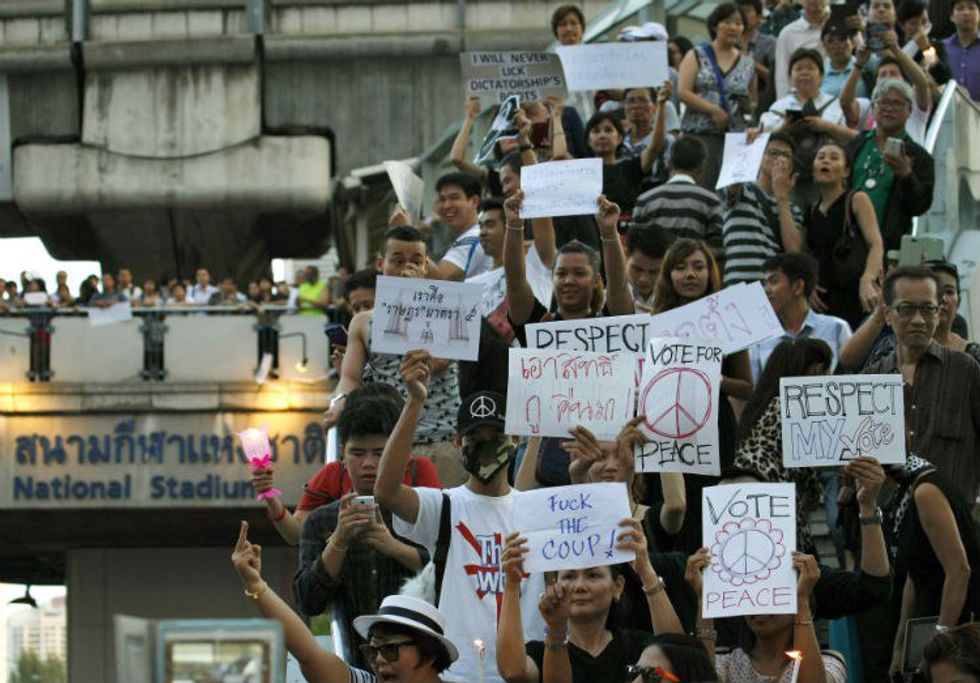
Protesters in 2014
Ever since Bhumibol’s accident in 1948 he has suffered to keep his health. He has had multiple surgeries on his back due to his spinal injuries. He has received treatment for various ailment including heart problems. There are rumors that said he suffered from Parkinson’s disease and depression. He was diagnosed with diverticulitis in November 2011 and treated in 2012. On October 1, 2016, the palace released a bulletin stating that King Bhumibol underwent tests that revealed a blood infection and an x-ray found inflammation on his left lung and water in his lungs. He was also in kidney failure and had been for some time but received dialysis. On October 9th he was placed on a ventilator and doctors pronounced him not yet stable. Crowds of Thai people gathered around the Siriraj Hospital and the Grand Palace, dressed in pink symbolizing good health and luck to offer prayers and support.
Women amongst the crowds praying and wishing luck for their respected King October 9, 2016. They wear pink for respect and luck. The pictures they are holding are of a younger King Bhumibol to show their respect and loyalty to their King.
By October 12, the royal children gathered and met with the Prime Minister and Crown Prince Vajiralongkorn. King Bhumibol was pronounced dead on October 13, 2016. The year of mourning has started.
The announcement of the death of King Bhumibol is a great loss to Thailand. The people loved him and greatly respected him.
Concerns of His Royal Highness of the Crown Prince becoming King are spinning around. He is not as respected as his father and the Thai people are trying to position Her Royal Highness Princess Maha Chakri Sirindorn for the throne for she is admired greatly among the Thai people.
A photo of the royal family
~“He was a King that was loved and adored by all. The reign of the king has ended and his kindness cannot be found anywhere else.”




